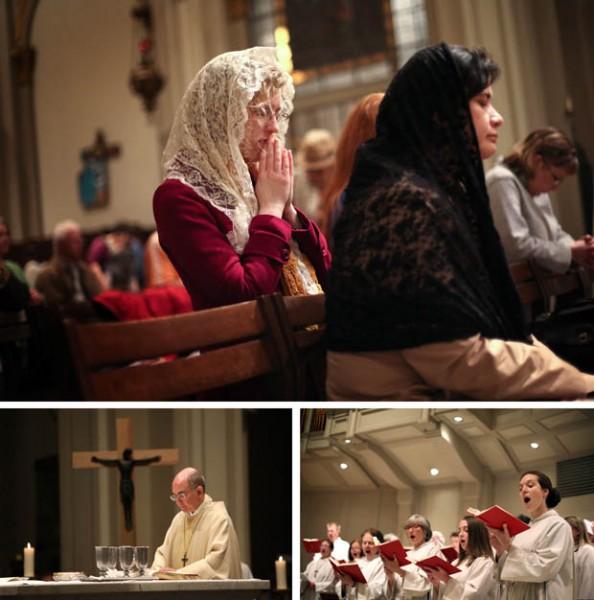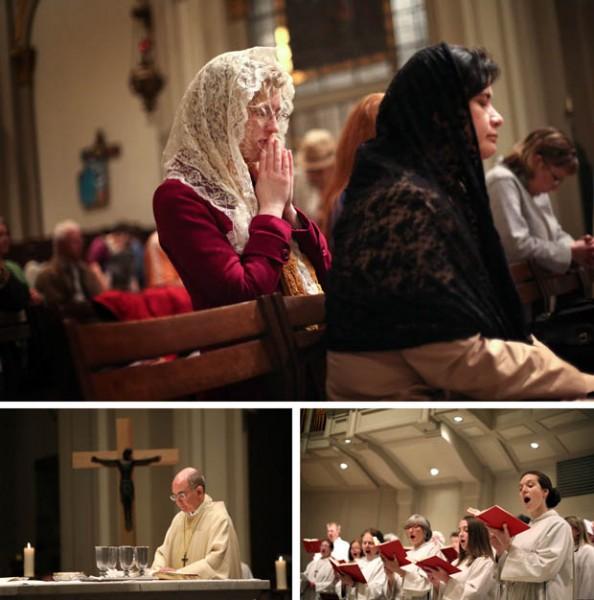Archdiocese Made ‘Astonishing’ Claim in Concealing Seattle Priest’s Sexual Offenses, Review Board Says
By Joel Connelly
The Archdiocese of Seattle failed to inform Catholic faithful, and made an “astonishing” claim and “serious misstatements” in seeking to explain why a priest suspended from ministry for sexual misconduct with a teenager went on saying mass and conducting weddings, say former leaders of a diocesan review board. “We urge you to consider releasing the documents of the review board relating to this matter, subject to not identifying any victims, so that the laity can have complete and accurate information,” retired Judge Terrence Carroll and former U.S. Attorney Mike McKay wrote earlier this month to Archbishop J. Peter Sartain. Or as Carroll put it bluntly in a Monday interview: “By God, let those files be open so people can know what and who we are dealing with. We may have another case like this out there.” The investigations documents, dating to 2004 and which the archdiocese has refused to make public, would reveal that a 17-year-old boy involved in a sexual relationship with the priest, Harry Quigg, was passed among the priest and friends, according to multiple sources. Sartain has not talked with or directly responded to Carroll and McKay. A subordinate at the diocesan chancery wrote that the archbishop gave their letter a “studied read.” The two men, formerly the chair and vice chair of the Review Board, were told that communications director Greg Magnoni “would like to work with you to correct parts of the statement that are incorrect.” (In response to a National Catholic Reporter request for the letter, Magnoni disclaimed knowledge of the communication from Carroll and McKay.) Carroll and McKay delivered a sharp reply to the offer from the Archdiocese: “We decline to actively participate in a rewrite because the church’s response to this sad event is far less forthcoming than it should be, containing more spin than substance.” The archdiocese wrote to parishoners at St. Bridget’s Church, where Quigg was once pastor, that it “learned recently” that Quigg had continued to act in public as a priest. It also claimed that, when Quigg was removed from active ministry, “(t)he information was not made public because of the determination that the sexual conduct did not involve a minor.” Citing their report a decade ago, Carroll and McKay told Sartain: “It was and remains our understanding that diocese policy requires that the initial determination to remove from the ministry is made known to the community. Any notion that the protection of Fr. Quigg’s ‘privacy’ would lead to a different conclusion is astonishing given the conduct and recommendation of the review board.” The review board had described Quigg’s conduct as “egregious” and “strongly recommended that he be removed from the ministry and his name published.” “. . . This is a serious case,” Carroll and McKay wrote to Sartain. “Although canon law may have given Fr. Quigg a pardon under church law and the work of the review board, there remains a serious moral issue about his conduct.” In a letter to Archbishop Alex Brunett, then the diocesan bishop, six members of the Review Board reported that one of their number had seen the “suspended” Quigg continuing to perform priestly duties. “We take strong issue with the suggestion in the statement that the archdiocese was unaware Fr. Quigg was continuing to perform priestly functions,” Carroll and McKay wrote to Sartain last week. ”Attached is a letter, dated Dec. 20, 2004, wherein we specifically refer to Fr. Quigg’s ongoing performance of priestly functions. “To suggest that such conduct has continued for 10 years without knowledge of the chancery cannot be accurate.”
The decision to withhold information about Quigg, and other offending priests, was made six years before Brunett retired and was succeeded by Sartain. Brunett is now recovering from a serious stroke. Carroll is now distinguished visiting jurist at the Seattle University Law School. He notes that Quigg’s offenses occurred under Brunett’s watch. But the longtime King County Superior Court judge remains offended at the church’s apparent mistrust of people in the pews. “I think it is betrayal of the work of the review board,” he said. ”We made it crystal clear what needed to be done. Many dioceses have reopened the files.” After hearing an appeal from Quigg, Brunett decided not to make public findings of the review board. Quigg had abruptly retired in 2000. The faithful at St. Bridget’s contributed to a retirement purse, continued to see Quigg socially and celebrated the 50th anniversary of his ordination. He helped to celebrate a memorial mass for the pastor of the Assumption-St. Bridget’s School. The review board appointed by Brunett reviewed the cases of 13 offending priests. It strongly recommended making all findings public, saying in a letter to the Archbishop that “the faith community needs to know,” adding: “It will be much harder for those offending priests who do participate in their ministry, even though barred, to do so because the entire church community will know and can inform the chancery if there is a barred priest involved in ministry.” The Archdiocese did issue a revised statement on Friday, conceding that parishes where he served were “unaware of Quigg’s restrictions.” It offered a modest mea culpa, saying: “It is also clear, given this information, that the steps taken by the Archdiocese were not sufficient to alert us of Quigg’s violation of the restrictions on the celebration of the sacraments.” “In consultation with the current Archdiocesan Review Board, the Archdiocese will review our monitoring systems, especially those related to priests who have abused minors, and the issue of public notification in cases of adult sexual misconduct,” added the statement. But the question that worried Carroll and McKay in 2004 still worries then in 2014. In an exchange with Sartain’s subordinates, they said: “Are there other priests on this monitoring status where their actions have been ignored?”
|
.
Any original material on these pages is copyright © BishopAccountability.org 2004. Reproduce freely with attribution.



